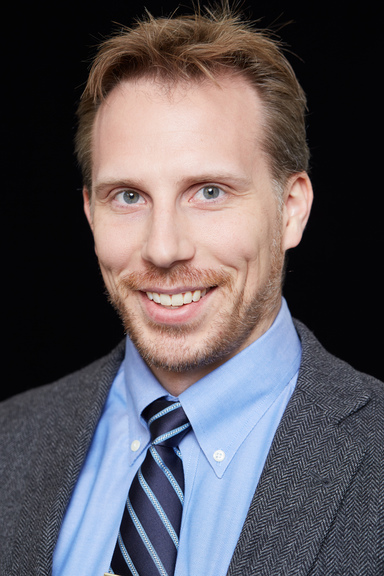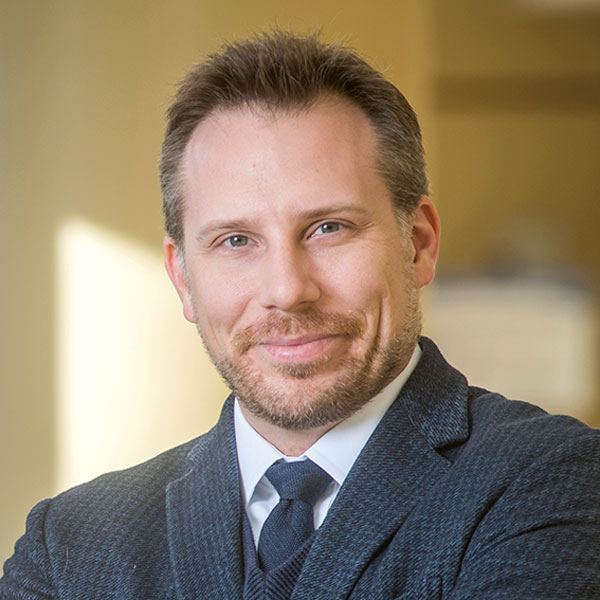Matt Might's speaking information
Thank you for your interest in having me as a speaker!
Please feel free to ask me to speak at your event, although I want to apologize in advance that I am unable to accept most speaking requests due to a schedule full of conflicts and obligations.
On this page, you'll find:
- my requirements (please read);
- speaking fees (updated for 2026-2027 requests);
- possible speaking topics, titles and abstracts;
- my bio and CV;
- example talks on youtube;
- professional headshots;
- CME objectives and questions;
- dietary restrictions (none); and
- travel preferences and booking information.
My requirements (please read)
Whenever I speak, I'm committed to giving an engaging, informative talk that leaves the audience armed with both knowledge and passion.
Please note that I use Keynote for Mac for my presentations in order to incorporate dynamic content and engaging visuals that would be difficult or impossible to make in tools like Microsoft PowerPoint.
In support of this goal:
- I need a general profile of the audience. I need to know their knowledge level and their interests, so that I can appropriately tailor it for maximum engagement. Where is the audience at the start? Where do you want them to be at the end?
- I cannot provide the final slides in advance. I can provide a rough draft in PDF of my slides in advance, but I reserve the right to change my slides up until I speak in order to incorporate relevant information, including from the talk before mine. My workflow and creative process has always been such that most of my insights hit me in the hours or minutes before the talk.
- I need to plug in my laptop directly. My laptop supports USB-C, VGA and HDMI output. I'm happy to arrive as early as you wish for an A/V test. (While it hurts animation quality, I can also present over zoom.) I can have the slides (stripped of all animations) in PDF form on a USB stick as a back-up.
For hybrid presentations, I can connect to the zoom and share my screen. However, this will usually lead to slow, jerky animations for the in-room audience, so my preference is still to plug in my laptop and then share on zoom for the online audience.
If any of these needs cannot be met, please let me know, so that we can discuss reasonable workarounds that preserve the quality of my presentation. For example, I may opt not to use slides at all.
Speaking fees
Unfortunately, due to the number of requests I receive, I have to turn down almost all speaking requests.
I have found that speaking and preparation for speaking, especially with travel, takes away time from the mission of the Precision Medicine Institute and from family, so I have a speaking fee schedule for speaking outside of UAB or UAB-designated activities to offset that opportunity cost:
- $2,000 for speaking in the greater Birmingham area;
- $5,000 for speaking domestically (plus travel costs); and
- $7,500 for speaking internationally (plus travel costs).
However, for speaking that directly relates to the mission of the Precision Medicine Institute or where there is an important public service element, I am often willing to waive that fee or reduce it.
So, you're more than welcome to ask me to speak with a reduced or waived fee, and I apologize in advance if I cannot accept.
Example talks
Here are some examples of talks I've given:
- Keynote for Harvard Precision Medicine Symposium
- TEDx talk
- 5th International Vatican Conference
- White House Champions of Change in Precision Medicine, panel moderator
Topics, titles, abstracts and videos
I always tailor and modify every talk I give to the audience, so you're not at all picking a canned talk from this list.
Please tell me the make-up and motives of your audience, so I can craft a presentation that will work well with their knowledge level and their interests.
For science in general, I speak most frequently on:
- how to leverage artificial intelligence;
- how to succeed in science; and
- how to succeed as a graduate student.
In computer science, I speak most frequently on:
- artificial intelligence;
- cybersecurity (for lay audiences and technical ones);
- programming languages;
- static analysis (especially of higher-order programs); and
- static analysis for security;
- parsing with derivatives.
In medicine, I speak most frequently on:
- precision medicine; and
- drug development and repurposing.
Below, I've listed frequent themes / titles for talks I can give.
Frequent title: The algorithm for precision medicine
This talk can be adjusted for lay or medically trained audiences.
It uses my personal story to drive a narrative around the development of precision medicine, and then generalizes into a process (an algorithm) for precision medicine for all patients.
Abstract
Precision medicine promises to deliver the right treatment to the right patient at the right time. The open question is how it will do so.
The answer is data. Precision medicine is data-driven medicine. It uses data -- frequently genetic data -- to prevent, diagnose and treat disease at its root cause and in the context of an individual patient.
This talk covers the development of an algorithm for conducting precision medicine, and it casts the creation of this algorithm through the lens of a personal story: of discovering that my child was the first case of a new, ultra-rare genetic disorder. From this story, I will generalize to a process that scales precision medicine to all disease, or rather, to all patients.
Topics coverable: genomic diagnostics, drug repurposing, artificial intelligence.
CME learning objectives
- To define precision medicine.
- To illustrate clinical precision medicine with a case study.
- To define an algorithm for conducting clinical precision medicine in general.
Examples of this talk
Frequent title: Winning the War on Error: Solving the Halting Problem and Curing Cancer
This talk theme is meant for audiences with a computer science background, and it covers a major thread of my work in computer science: the use of static analysis to predict the behavior of software in order to improve (primarily) its security and also its performance and its reliability.
Using approximation as a unifying theme, it then pivots into medicine using my personal story to explain the concept of precision medicine to treat rare genetic disease. It then discusses how to cure cancer as a collection of rare genetic disorders.
Abstract
Errors in code for software lead to failures both routine and catastrophic -- and to the vulnerabilities at the root of the escalating security crisis. Errors in code for people -- the human genome -- give rise to chronic conditions, devastating rare diseases and, for half of us, cancer. This talk addresses how to end errors in code -- both digital and biological -- through conservatively approximating solutions to the halting problem for machines and through a computational rethink of the practice of medicine for people.
To evade the halting problem, I will present a broad, universal framework for conservatively approximating the behavior of programs -- Abstracting Abstract Machines (AAM) -- and discuss the success of applying this approach to detecting and eliminating security issues in software.
I will then provide a programmer's introduction and overview of precision medicine; argue that computation has becoming the limiting reagent in saving lives; and explain how an algorithmic approach in medicine is the key to the diagnosis, discovery and treatment of both rare genetic disorders and cancers.
Examples of this talk
My bio and CV
You can generate a bio appropriate for your event at this page, and you'll find my bio there as well.
Headshots
My official UAB headshots: https://matt.might.net/pics/pmi-headshots/


Dietary restrictions and preferences
If you're inviting me to a meal as part of my attendance, I'm always happy to join if possible!
I have no dietary restrictions, and I eat everything.
I'm always curious to try local specialties.
Travel preferences
I strongly prefer Delta airline (SkyMiles# 2299980066).
I sometimes use JetBlue (TrueBlue# 2130050366) if logistically necessary (often for Boston-DC travel), but please contact me for booking non-Delta.
For travel outside the U.S., I often book my flights 3-4 weeks out since that's when my schedule has finally become most predictable.
Within the U.S., I tend to book my flights a few days out, or even day of, since I often don't have enough predictability on my schedule.
Please contact me before booking basic economy fares. I will almost certainly be happy to pay the difference for a regular economy ticket. I often have to adjust my travel, and it is very difficult (and sometimes impossible) to adjust an itinerary on a basic economy ticket.
When possible, I prefer airfare booked as two one-way flights over a single round-trip flight for the same reason: I have to adjust my travel often enough that this is easier. In some cases, I may cancel (or miss) the in-bound flight to take an alternate means of travel, and the airline will often cancel the return trip.
Commonly needed info
Date of Birth: 24 July 1981.
Full name: Matthew Brendon Might
Seating preference: Aisle
Known traveler number (KTN): 983756847
Seating preference exceptions:
- if on a short flight (e.g. Boston to Atlanta) flying north/south during sunrise or sunset, I prefer a window seat on the side of the sunrise/sunset.